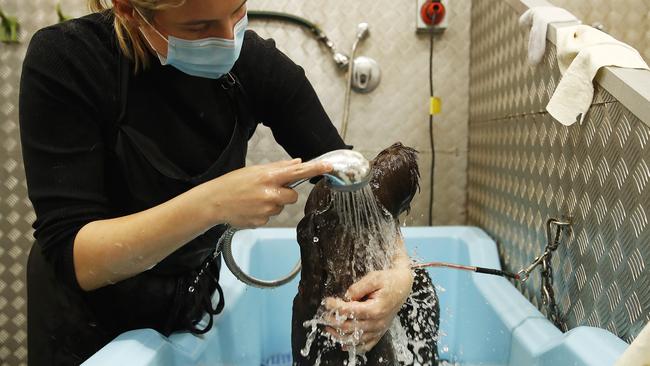Pandemic coverage insurance test case opens
Insurers say it has never been their business model to cover pandemics.

The NSW Court of Appeal on Friday heard the opening arguments of a test case that could result in insurance companies paying out hundreds of millions of dollars to businesses economically affected by the COVID-19 pandemic.
The landmark case was brought forward by Insurance Council of Australia and the Australian Financial Complaints Authority in July to establish whether insurers are liable to pay out to COVID-19 affected customers with businesses interruption policies.
Insurers say it has never been their business model to cover pandemics, with standard business interruption policies excluding diseases classified as a “quarantinable disease” under the Quarantine Act 1908.
The only problem is the act no longer exists, having been superseded by the Biosecurity Act 2016, which classifies COVID-19 as a human listed disease.
Now, the full bench of the NSW Court of Appeal will have to decide whether references to “quarantinable diseases” can be extrapolated to “human listed disease,” a decision which would save insurers hundreds of millions in payouts.
Appearing for the applicants who volunteered to take part in the test case – a caravan park in the NSW City of Tamworth insured by HDI Global Specialty SE (Australia) and a health food store in Melbourne insured by Hollard Commercial – John Sheahan QC argued that references to the Quarantine Act had no effect as the legislation had been “removed from the statute book.”
Appearing for the Insurance Council, Bret Walker SC argued that many policies also exclude diseases classified in “subsequent amendments” to the Quarantine Act, which he said should encompass the Biosecurity act.
Mr Sheahan said this line of reasoning was “tautological.”
“There is no such thing as an amendment of something that does not already exist,” he said.
“The mechanism is gone.”
Mr Walker asserted that a common sense reading should apply to the clause.
“It means that the parties were intending to refer, plainly, clearly, without dispute, to a statute that was contemplated might change,” he said.
“What did they (the insurers) mean if they did not mean a statute which would not provide a sensible restriction on the devastating economic effect … caused by, for example, a lethal pandemic?”
Mr Sheahan rebutted, saying the clause should be read literally.
“It says what the person who wrote it intended it to say, and it has that effect,” he said.
Should the case be decided in the favour of the insured parties in the NSW Court of Appeal the court would then consider additional questions to determine to what extent a business has been interrupted.
In a statement, the Insurance Council of Australia said it looked forward to the court’s ruling.
“The ICA is pleased the Court of Appeal has been able to hear the case on an expedited basis and looks forward to a swift determination,” the statement said.
“The case is an important step towards providing greater clarity to customers, insurers and regulators in the treatment of pandemic-related claims.
The case is one of several attempting to define and establish the liabilities insurers face for the disruption caused by COVID-19.
Sydney’s Star Casino is currently engaged in litigation with its insurers in an attempt to claim the economic loss is suffered as a result of social distancing and lockdown requirements against its business interruption policy.
The UK High Court has ruled on a similar case, stating that a majority of businesses with business interruption insurance that were forced to close due to the pandemic are entitled to compensation.
Australian listed insurer QBE is a defendant in the UK case and is mulling whether to appeal the decision.
QBE estimates its UK business interruption claims exposure is around $170m before recoveries under its catastrophe reinsurance protections.


